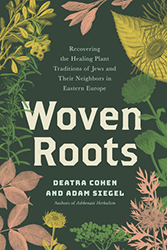Jewish Cultural Studies charts the contours and boundaries of Jewish cultural studies and the issues of Jewish culture that make it so intriguing-and necessary-not only for Jews but also for students of identity, ethnicity, and diversity generally. In addition to framing the distinguishing features of Jewish culture and the ways it has been studied, and often misrepresented and maligned, Simon J. Bronner presents several case studies using ethnography, folkloristic interpretation, and rhetorical analysis. Bronner, building on many years of global cultural exploration, locates patterns, processes, frames, and themes of events and actions identified as Jewish to discern what makes them appear Jewish and why.
Jewish Cultural Studies is divided into three parts. Part 1 deals with the conceptualization of how Jews in complex, heterogenous societies identify themselves as a cultural group to non-Jews and vice versa-such as how the Jewish home is socially and materially constructed. Part 2 delves into ritualization as a strategic Jewish practice for perpetuating peoplehood and the values that it suggests-for example, the rising popularity of naming ceremonies for newborn girls, simhat bat or zeved habat, in the twenty-first century. Part 3 explores narration, including the global transformation of Jewish joking in online settings and the role of Jews in American political culture.
Bronner reflects that a reason to separate Jewish cultural studies from the fields of Jewish studies and cultural studies is the distinctiveness of Jewish culture among other ethnic experiences. As a diasporic group with religious ties and varying local customs, Jews present difficulties of categorization. He encourages a multiperspectival approach that considers the Jewish double consciousness as being aware of both insider and outsider perspectives, participation in ancient tradition and recent modernization, and the great variety and stigmatization of Jewish experience and cultural expression. Students and scholars in Jewish studies, cultural studies, ethnic-religious studies, folklore, sociology, psychology, and ethnology are the intended audience for this book.

Jewish Cultural Studies
Discussion Questions
In Jewish Cultural Studies, Simon J. Bronner, dean of the College of General Studies at the University of Wisconsin-Milwaukee, explores a maximalist definition of Jewish culture. Using examples from Jewish ritual, literature, storytelling, politics, and media, Jewish Cultural Studies challenges the reader to recognize orientations that identify these experiences, for both the Jewish and broader community, as expressions of Judaism and Jewishness. Academic in its presentation, Jewish Cultural Studies is a valuable read for those who seek a deep dive into the intersection between Jewish studies, ethnology, anthropology, and sociology. At the same time, reflecting on the distinctive qualities of Jewish culture, which blend a diaspora mindset, religious practice, and the customs of surrounding non-Jewish communities, Bronner argues for Jewish cultural studies to find its rightful place as an independent field from the larger disciplines of Jewish studies and cultural studies.

Help support the Jewish Book Council.



